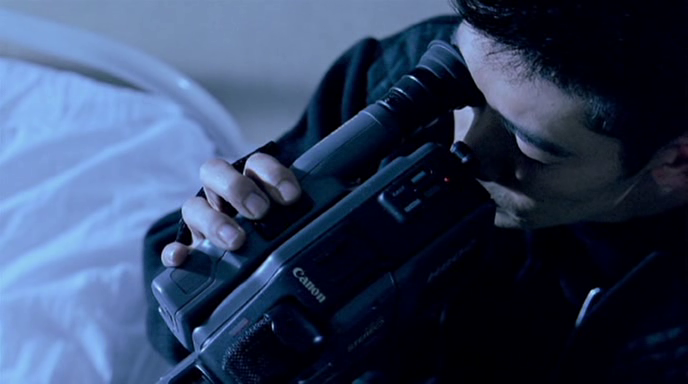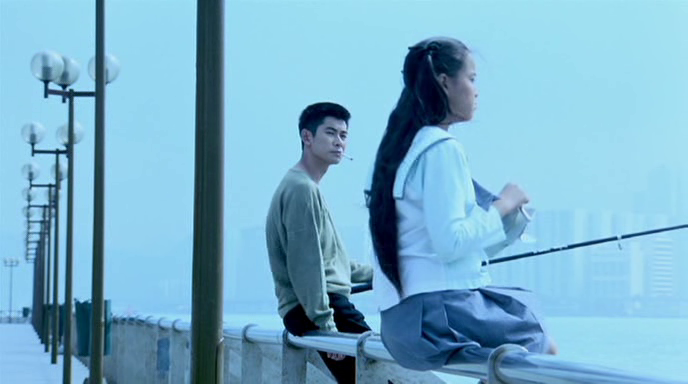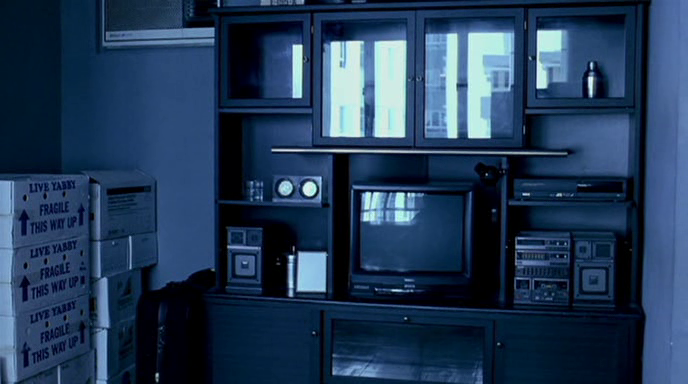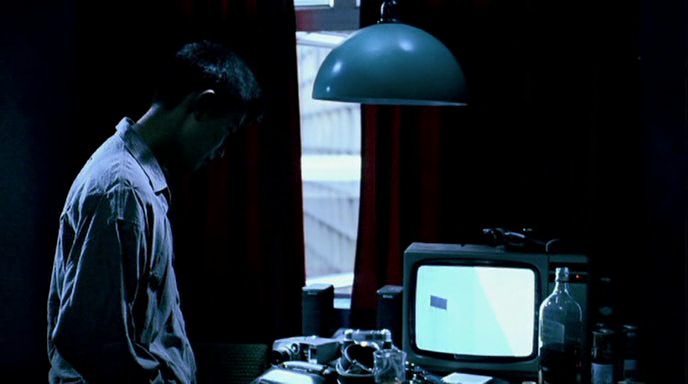'Autumn Moon' by Clara Law Review: A story of culture, loneliness, and an attempt to find belonging

There's a more recent concept that multiculturalism requires the abandonment of all identity and culture in order to be successful, where our individualism is ignored and we're all seen as one. This is far from any culture, and in essence builds a society void of any aspects of the past and present actions that roughly shape us into who we become later on in life.
Particularly in the west, there's very few films which take on this issue as our cities grow increasingly with varying nationalities, though ultimately many elements of culture are lost and fade out of relevance in their lives as they adjust to completely different living standards and expectations.
I discovered Autumn Moon having searched through numerous lists of Hong Kong films from the 80s and 90s, though I don't recall ever reading what it was actually about, but with its simple narrative and very obvious subject, it quickly managed to grow on me as it unfolded a story featuring loss, abandonment, and the realisation of our unknown futures.
Particularly, the film surrounds itself on characters in Hong Kong that face the idea of migrating to western countries in search of better opportunities, as well as those that are attempting to escape their own countries in search of a life more meaningful to their emotions.

The characters in Autumn Moon are witnessing some form of abandonment either directly or a result of the actions from others. We see how children and the elderly are left behind as families are split into two in search of better opportunities in hopes that one day they can once again come together under better circumstances. We see how the lives of those left behind are impacted the most; a teenage girl left with her elderly grandmother witnesses how each of her friends also begin to leave her, as she's left lonely and with very little understanding of the world and how people act.
There's curiosity in these aspects of human behaviour that arises as she begins to question aspects of friendship and love, as people come and go in her life. That childlike sense of curiosity is often met with the harsh realisation of life's ability to push forward in directions we don't particularly expect or want, as hardships arise in the form of lifestyles and emotions. Ultimately, the main thing she has is her grandmother's cultural cooking. This is then heavily enjoyed by an older man she meets: a Japanese tourist in Hong Kong that has escaped his troubles in search for deeper connections with people.
There's a friendship that's formed between these two individuals with incredibly different lifestyles and cultures, but the fact that the two share the same emotions as a result is what brings them together, a friendship is ultimately formed via the sharing of their cultures as the two discuss the world and learn new things about each other, and thus themselves as a result.
I found this quite interesting to watch, given the cinematography in the film is nothing special, neither is the soundtrack. In fact, the static camera and lack of frequent music is what amplifies their feelings of loneliness and despair as they search deeper into themselves for an understanding of their place in life and where things might be heading. The film is a slow, static epiphany on one's own hardships and the realisation of time inevitably passing. That while people come and go and we search for a place to belong, our cultures are ultimately our homes. Where culture serves forever as the foundation to who we are and how we share ourselves with others.
During the tourist's stay in Hong Kong, he reflects frequently on his past, particularly his relationships which have led to a lifestyle that appears incomplete and void of true connection. I found a particular moment of his to be quite engaging where he delves into a monologue detailing his loneliness as he misses the time where people would ask him simple questions: where did he grow up? What is his favourite food? What key moments of his childhood does he remember the most?
This particular moment coincides with an ealier scene in which he asks the teenage girl to take him to a traditional Hong Kong restaurant, where he himself is curious about culture and people and longs for someone to simply guide him through the city and share their culture and personality with him. He is taken to a McDonald's, where he's clearly not satisfied. Though, to how teenage girl, this is what she considers to be her culture, heavily influenced by western culture.

As the two characters begin to discover themselves and address their main issues in life, it's interesting how the main reason is due to the elderly grandmother, who actually has very little dialogue and influence in the film. Her presence is mostly met through her cooking. Our Japanese tourist carries around a big digital camera in which he films everything and often speaks over the recording; in a hospital, he records her final wishes for those she loves, detailing that even in the face of death, all she really wants is a nice burial high up on a hill so that she can overlook her relatives and ensure they remain well and safe.
This reflects that aspects of traditional culture where the elderly cling to superstition and religion, constantly wanting to pray, or to light incense sticks through matches rather than via the stove. We see how she cooks authentic meals and takes good care of strangers that enter the home, even cooking meals for their cat. At a glance, it's easy to overlook these moments given the static cinematography and rather uneventful approach. Though these moments piece the film together as it reaches a conclusion: happiness in life can be found rather easily through the personalities we have formed by our relatives, as culture is continued and passed down to us.
While we may lack social interactions and feel as if we have no belonging, it's far from the truth as we can very easily share these parts of ourselves with others, even if they are not ultimately part of our culture. I don't think I've seen a film with such simplicity that focuses on these issues before, with such a consideration for the fragility of our minds and how easily loneliness and despair can plague our minds as we abandon the foundations of who we are. It refers to the concept that travel itself can free the mind, but that's due to the realisation that you've entered a completely different world to the one you know. This is pretty much what happens to our Japanese tourist, even if things are quite similar at a glance.

Much of the thoughts we hear on life come from our Japanese tourist's moments of reflection, where he's looking through a video camera's viewfinder which provides a low quality, very blue image. He uses the camera to record everyday locations and events, almost using the camera as a shield to hide himself from the real world. It's interesting in parts of the film that such moments with a strong blue filter are in fact the moments with the most emotional weight for this character.
The recordings are his way of showing that he exists, as reflections to himself as he watches them and plays them over on the television in the room he's renting. It's never really evident what else these videos are being taken for, he never really reveals why he's taking them or who he's taking them for. They're personal moments revealed to us, the audience, that show a very nihilistic, lonely perception of someone's surroundings. In parts, we get an aerial view over Hong Kong from quite a low altitude. As if we're flying over the city; it almost feels as if the film is telling us that these two individuals are one of many more beneath us. In a city that's very multicultural, but ultimately feels a complete lack of identity.
It's an interesting concept to consider, particularly as other films from the same era have considered the multiculturalism of the city but never really looked at it as a method of finding peace together. That while each of them may be different, they can still come together and be happy by sharing those differences.
Wait what since when no O_O
This looks like something I wouldn't have minded showing up in one of my film units when I was at uni.
Sadly it's what's happening in most of the first world country capitals. Where the cities are losing all aspects of culture. London is very much like this, it's kinda sad. Everything looks the same, everyone dresses the same, speaks the same, ultimately everyone is the same.
Congratulations @namiks!
You raised your level and are now a Minnow!
Check out the last post from @hivebuzz:
Support the HiveBuzz project. Vote for our proposal!